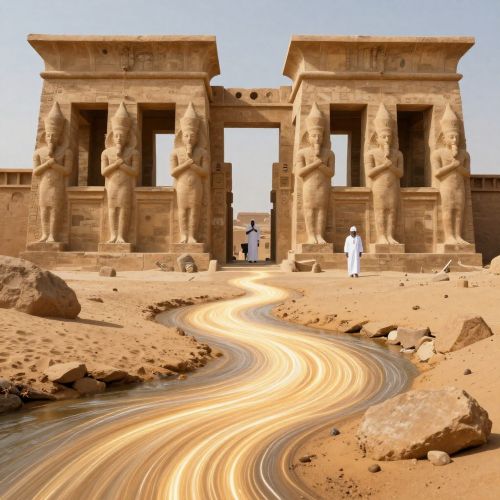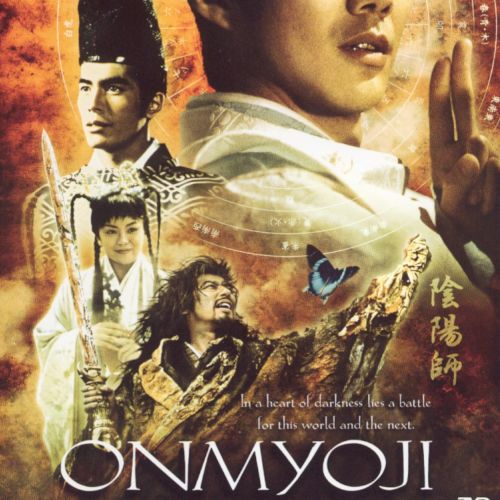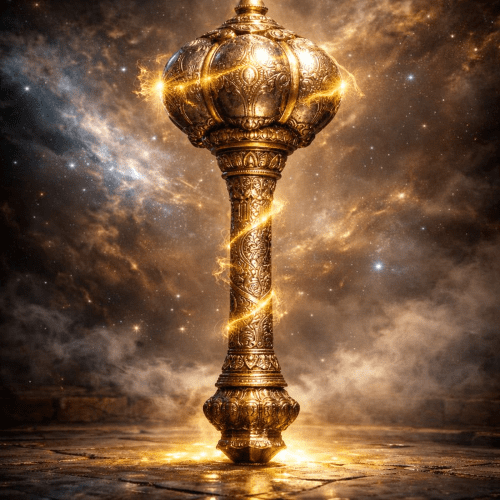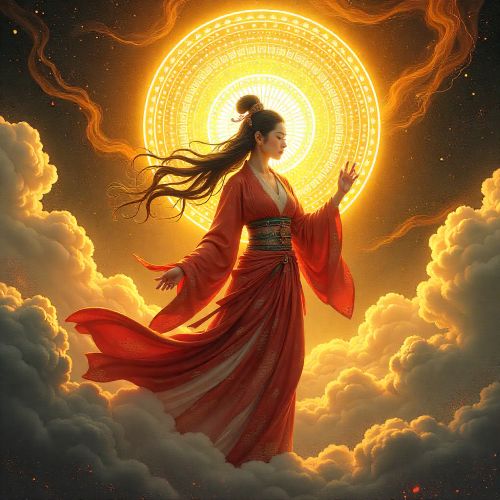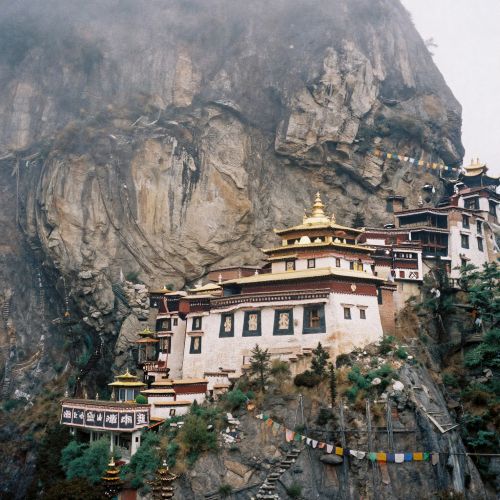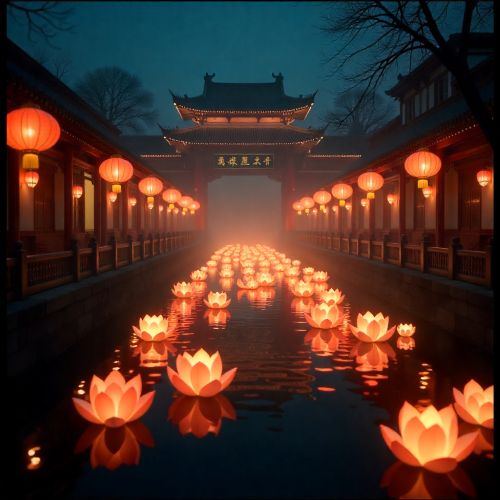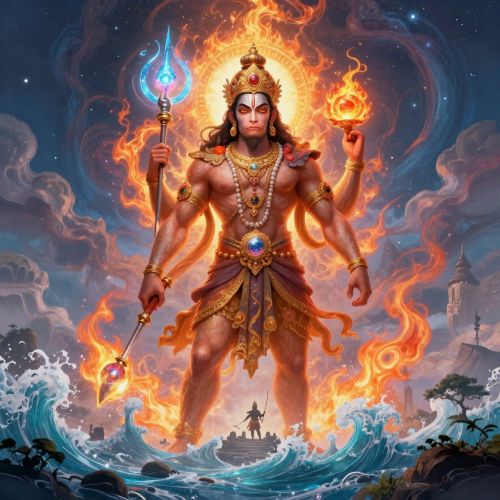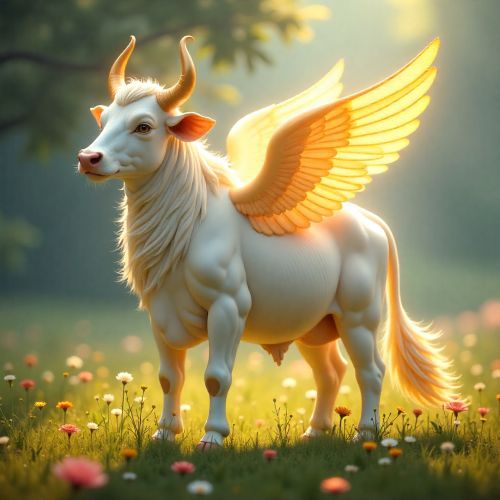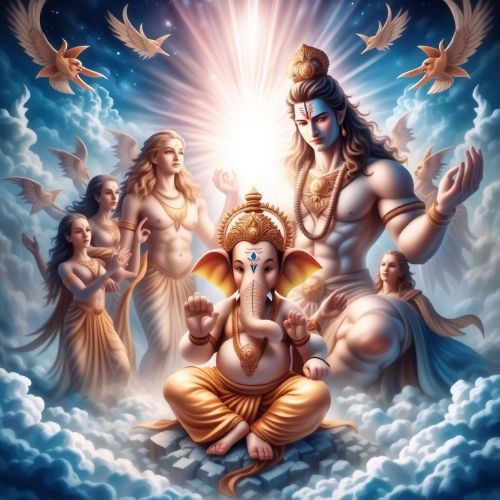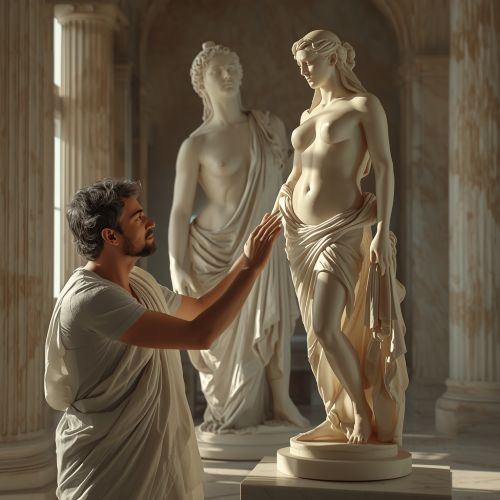Peaches of Immortality : China’s Legendary Fruit of Eternal Life
Listen
At a glance
| Description | |
|---|---|
| Mythology | Chinese Mythology |
| Bestowed Upon | Immortals, deities, select mortals |
| Granted By | Xi Wangmu |
| Primary Effect | Immortality, spiritual enlightenment |
| Conditions Attached | Must be invited to the Peach Banquet; moral worthiness required |
Blessing of Immortality
Introduction
The Peaches of Immortality, known in Chinese mythology as pántáo, stand among the most iconic symbols of eternal life, divine power, and spiritual transcendence. These legendary fruits appear throughout Taoist texts, ancient art, and classic literature, especially in tales involving the Queen Mother of the West, Xiwangmu. Their reputation as fruits capable of granting immortality has made them an enduring cultural motif representing longevity, vitality, and the quest for enlightenment. Across dynasties and centuries, the myth of the peaches has remained a powerful reminder of humanity’s timeless fascination with everlasting life.
Mythological Background
The mythic home of the Peaches of Immortality is Mount Kunlun, the spiritual axis of heaven and earth in ancient Chinese cosmology. This sacred mountain is believed to be the dwelling place of Xiwangmu, who tends a vast orchard of divine peach trees. These celestial trees grow unlike any earthly plant; instead of following seasonal cycles, they bloom and bear fruit over millennia. Traditional sources describe peaches that ripen only at 3,000, 6,000, or 9,000-year intervals, with each cycle producing fruits of increasingly potent spiritual benefits. Early Taoist classics such as The Classic of Mountains and Seas speak of these peaches as rare cosmic treasures capable of nourishing immortals.
Within Chinese mythology, Kunlun is portrayed as a paradise where time flows differently and divine beings gather. The orchard’s slow ripening symbolizes the patient path to spiritual attainment, making these peaches a metaphor for transformation and enlightenment rather than merely a magical shortcut to eternal youth.
Granting of the Boon/Blessing
The granting of immortality through these peaches is most famously linked to the grand celestial celebration known as the Peach Banquet, or Pántáo Huì. Hosted by Xiwangmu, this heavenly feast welcomes gods, immortals, sages, and spirits who have attained high virtue. The event marks the rare moment when the peaches ripen, and consuming them becomes a ceremonial act symbolizing divine approval.
Mythological traditions often describe invitations extended to exalted beings such as Laozi or the Eight Immortals. The banquet is not merely a social gathering but an affirmation of cosmic harmony, where each participant partakes in the divine gift of longevity. In many folk retellings, the seven fairies of Kunlun serve as attendants, gathering the ripe fruits for the Queen Mother’s honored guests. This ritualized offering underscores the sacred nature of immortality—it is bestowed through divine order rather than taken by force.
Nature of the Boon/Blessing
The peaches bestow far more than physical endurance; they grant spiritual longevity that transcends earthly limitations. Their powers vary according to their rarity. Legends describe the 3,000-year peaches as offering enhanced vitality and heightened wisdom to those who eat them. The peaches that ripen every 6,000 years are said to restore youth and grant abilities such as flight. The most extraordinary variety, appearing every 9,000 years, is believed to grant absolute immortality, placing the consumer among the celestial beings who endure as long as the sun and moon.
This layered mythology reflects a broader Taoist philosophy in which immortality is achieved through harmony with the Dao. The peaches symbolize the internal alchemy that sages pursue—transforming mind, body, and spirit into an eternal state aligned with cosmic energy.
Recipients and Key Figures
Though the peaches are meant primarily for divine beings, several legendary figures emerge as important recipients—or misusers—of their power. Two historical rulers, King Mu of Zhou and Emperor Wu of Han, are said in folklore to have received the peaches as tokens of heavenly favor. Their inclusion highlights the ancient belief that rulers with divine mandate enjoyed longevity and cosmic protection.
In literature, Sun Wukong, the Monkey King from Journey to the West, stands as the most famous figure associated with the peaches. As the appointed guardian of the orchard, he eventually consumes them in a rebellious act that grants him immense power and immortality. His actions lead to the disruption of the Peach Banquet and trigger a chain of events culminating in his battle with Heaven.
The Eight Immortals frequently appear at Peach Banquets in art, poetry, and opera, reinforcing their role as paragons of Taoist virtue. Their presence symbolizes the ideal path toward spiritual elevation rather than the reckless pursuit of power.
Effects and Consequences
Eating the Peaches of Immortality confers profound transformations. For gods, it reaffirms their eternal nature; for mortals, it breaks the cycle of aging and death. Sun Wukong’s consumption of the peaches dramatically increases his strength, invulnerability, and spiritual resilience—making him nearly impossible for celestial armies to subdue. However, this unauthorized act brings chaos to heaven, illustrating the Taoist moral that immortality without discipline leads to disorder.
Another notable story involves Dongfang Shuo, a court trickster who steals peaches during a celestial feast. Though he gains longevity, he is eventually banished from heaven, demonstrating that the blessings of immortality come with strict conditions and cosmic balance must always be maintained.
Symbolism and Spiritual Meaning
The Peaches of Immortality carry deep symbolic meaning in Chinese culture. They represent longevity, prosperity, and the aspiration toward spiritual perfection. Their millennia-long maturation reflects the Taoist belief that true enlightenment requires patience and consistent cultivation. In Taoist internal alchemy, the peach becomes a metaphor for the life-force one must nurture to transcend mortality.
As a motif, peaches frequently appear with cranes, pine trees, and deer—other symbols of long life—to emphasize the harmony between nature and spiritual cultivation. Their connection to Xiwangmu also highlights the feminine aspect of creation, renewal, and cosmic nurturing.
Cultural Impact and Legacy
The impact of the Peaches of Immortality extends far beyond mythology. They have left a lasting imprint on Chinese festivals, fine art, and daily cultural practices. Peach imagery appears on porcelain, temple murals, embroidered robes, and New Year paintings. Peach-shaped buns, shòutáo, are still served during birthdays to symbolize the blessing of long life.
The tale of Sun Wukong’s chaos in the orchard remains one of the most popular episodes in Journey to the West, shaping global interpretations of Chinese myth. In Taoist temples, reenactments of the Peach Banquet celebrate Xiwangmu’s birthday and invoke prayers for health and longevity. Even today, the peaches stand as one of the most recognizable symbols of auspicious fortune, bridging ancient myth with modern cultural identity.
Source
Idema, W. (2017). The Monkey King: A Study of Sun Wukong in Chinese Mythology. University of Hawaii Press.
Littleton, C. S. (2002). Mythology: The Illustrated Anthology of World Myth and Storytelling. Duncan Baird Publishers.
Pregadio, F. (2013). The Encyclopedia of Taoism. Routledge.
Falkenhausen, L. V. (2006). Chinese Society in the Age of Confucius (ca. 551-479 B.C.E.): The Archaeological Evidence. Cotsen Institute of Archaeology Press.
“Peaches of Immortality.” (2007, January 6). In Wikipedia. https://en.wikipedia.org/wiki/Peaches_of_Immortality
Kiddle, Kids Encyclopedia. (n.d.). Peaches of Immortality. https://kids.kiddle.co/Peaches_of_Immortality
Wikipedia contributors. (2024). Peaches of Immortality. Wikipedia. https://en.wikipedia.org/wiki/Peaches_of_Immortality
Luo, Z. (2025). The Myth of the Immortal Peach: A Symbol of Abundance and Longevity. Chinese Mythology Worldwide. https://chinese.mythologyworldwide.com/the-myth-of-the-immortal-peach-a-symbol-of-abundance-and-longevity/
Frequently Asked Questions
What are the Peaches of Immortality in Chinese mythology?
They are mythical fruits grown in Xiwangmu’s heavenly orchard that grant immortality and longevity when consumed.
How often do the Peaches of Immortality ripen?
Legends describe ripening cycles of 3,000, 6,000, and 9,000 years, with each producing more powerful peaches.
Who eats the Peaches of Immortality?
Gods, immortals, and select divine guests at the Peach Banquet; figures like Sun Wukong also famously consume them.
What happens if a mortal eats a Peach of Immortality?
They gain extraordinary longevity or full immortality, depending on the variety consumed.
Are the Peaches of Immortality used in Chinese festivals today?
Yes, peach imagery appears in art and celebrations, and peach-shaped buns symbolize long life during birthdays.




